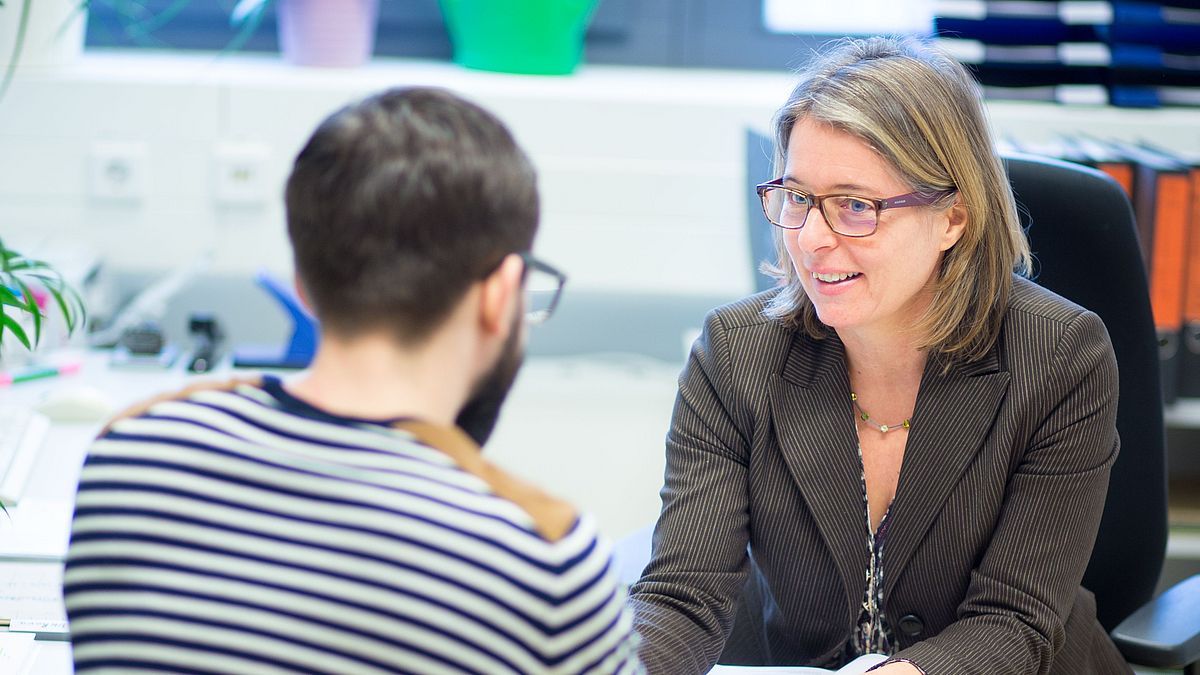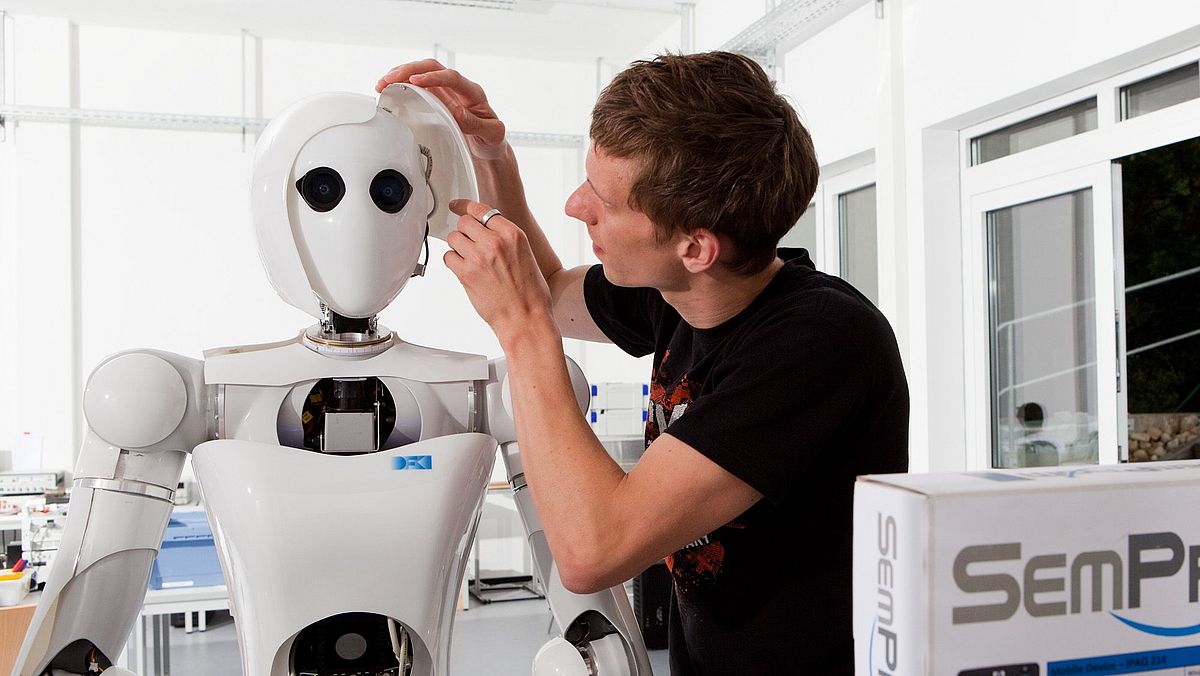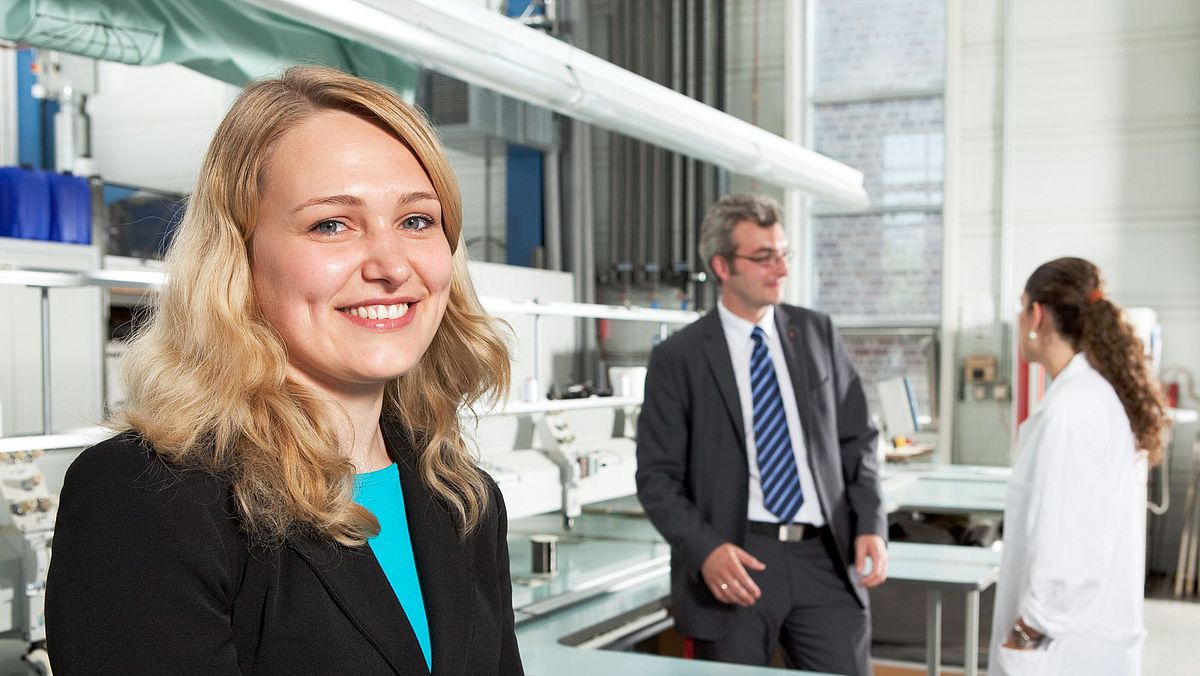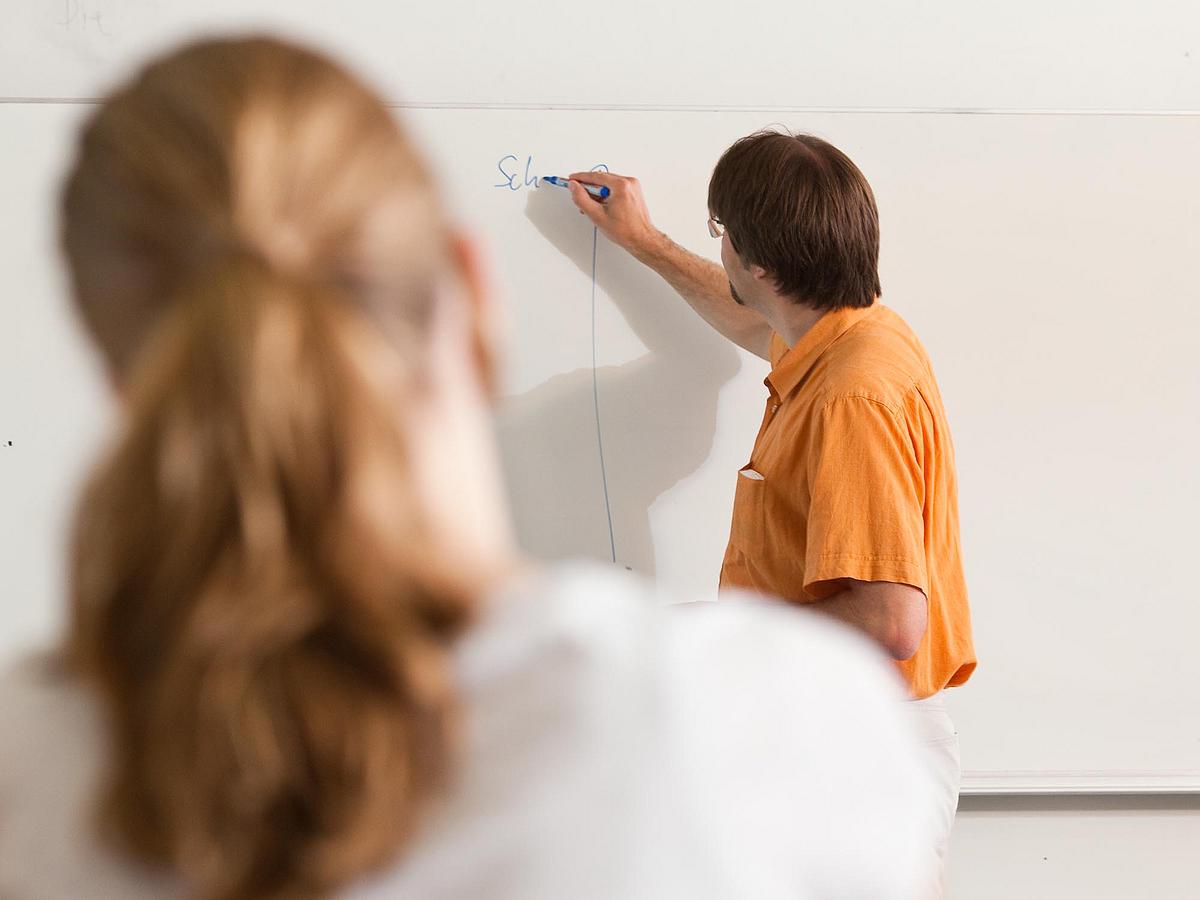Sustainability
The University of Bremen has been committed to the sustainable development of our world for years. This involves, on the one hand, taking a scientific approach to the issue of sustainability with numerous projects and, on the other hand, constantly reviewing the university’s own actions to ensure that they are in line with environmental, social, and economic sustainability.
The sustainability guidelines adopted by the Academic Senate in 2011 and a set of governance rules for environmental and sustainability management form the basis for sustainable development at the university. Additionally, the University of Bremen is committed to implementing the 17 Sustainable Development Goals by the United Nations.
For years, the University of Bremen has developed a successful organizational structure to realize the objec-tives of the EMASenvironmental management program. Three sustainability statements were already issued. In addition, each year, a detailed environmental statement is published which specifies our goals, the status quo, and how the university will put the measures into practice. It also names the persons responsible at the university.

Environmental Management Key Data
The university strives to have its environmental management system permanently validated. Key priorities of our environmental management are climate protection, energy efficiency, and mobility, while involving as many members of the university as possible. Upcoming projects within environmental management include optimizing technical facilities to make them more energy efficient and promoting biodiversity on campus. Efficient use of resources (energy, water).
The Integrated Climate Protection Concept and Its Scope
The climate protection concept, which was developed in 2015 in cooperation with the HIS-HE (Institute of University Development) will be implemented in the years to come. Key objectives include the assessment of the current energy consumption, the identification of energy-saving potential, the initiation of suitable energy performance contracting measures, the participation of internal and external stakeholders, the implementation of a controlling system that focuses on the goals of the climate protection concept, and comprehensive public relations work. The climate protection management to be established is being supported by the German Federal Ministry for the Environment within the framework of the municipal guideline.
CO2 Emissions Reduction – Suggestions for Mobility Management
With the newly started operation of the Green IT Housing Center, energy savings of up to 2.8 million kWh and of up to 3.2 million kWh for cooling are expected annually. The investment costs for the construction of the Green IT Housing Center are expected to be fully offset in the next eight years.
The climate protection concept also addresses the mobility habits of university members. Here, the results of an internal survey on the mobility practices of university members will be used to develop and introduce climate protection measures through alternative mobility concepts.
Biodiversity
Preservation and promotion of biodiversity is one of the key environmental management objectives at the University of Bremen. The founding of the student initiative (NUB – The Nature Conservation Group at the University of Bremen) and the establishment of a “BiodiversityHub” are supposed to trigger a broad university-wide debate about biodiversity and implement concrete measures for its promotion on campus.

Recognizing, Supporting, and Promoting Diversity Sustainably
The university is consistently pursuing and developing its audited diversity strategy in order to include new diversity dimensions in its strategic orientation. These processes are audited and benchmarked against other universities on an ongoing basis. In the future, one key focus of in-house processes will be on creating a diversity-sensitive human resources policy. This policy is to be linked to structures and services in the area of anti-discrimination and conflict counseling for management and university employees.
Sustainable Gender Equality
Equal opportunities and anti-discrimination are guiding objectives and integral parts of the long-term university strategy. The DFG-funded Women Professors Programme at the university pursues set goals to ensure that women in science are especially promoted. These competitive processes encourage ongoing quality development and the advancement of fair and gender-equitable quality standards at the university.
Family-Friendly University
In the context of the re-auditing as a family-friendly university, the university is currently in the so-called consolidation phase. This means that processes and measures to make the university more family-friendly and to improve the work- /study-life balance of its members with family responsibilities are being consolidated. Currently, the effects of the university’s family-friendly measures are being evaluated in order to assess their impact and feasibility and, if necessary, to adjust and realign them. This is an ongoing evaluation cycle that has now been firmly established at the university.
Promoting and Living in a Socially Sustainable Way at the University
The University of Bremen maintains and further develops established structures on an ongoing basis; especially activities within the scope of BYRD, personnel development – e.g. for new appointees – the Barrier-Free Study Working Group, the Gender Mainstreaming Steering Committee, and the Diversity Steering Committee. In addition, a regular dialogue between the University Executive Board and the individual interest groups, such as the Staff Council, the Women's Affairs Representative, the Representative for Disabled Employees, and the Non-Professorial Academic Staff Council - KRAM, is an integral part of our daily business.
Studying With Special Needs – Accessibility and Participation
At the University of Bremen, the Office for Students with Disabilities or Chronic Diseases (KIS) advises and represents the interests of students with special needs. Additionally, the Inclusion Action Plan working group is in charge of promoting the implementation of the UN Convention on the Rights of Persons with Disabilities. There is also a close cooperation with the Representative for People with Disabilities of Bremen State, Arne Frankenstein.
InWi Model Project – Inclusion in Science
As part of the InWi model project, twelve academics with severe disabilities have benefited from support on their way to obtaining a PhD, and the first PhDs have either already been completed or are about to be completed. The experience gained from the project is going to be further utilized in close exchange with the PROMI project (University of Cologne).
The InWi program is continuously being evaluated and the first students graduated. One of them is currently pursuing an academic career as a postdoctoral researcher.
The University’s International Orientation
Internationalization is a central objective of the university’s strategy and firmly anchored across all areas of the university. The future version of the Internationalization Strategy (currently under revision) will contain several goals and fields of action that contribute directly or indirectly to sustainable development. These are primarily:
- Research and teaching have a responsibility to society and contribute to sustainable global development. Internationalization ensures a global exchange as a basis for this work.
- University cooperation with partners from the Global South is a natural part of our strategy; training of young scientists from these countries/with partners from the Global South.
- Supporting at-risk and refugee scholars through hosting Philipp Schwartz Initiative scholarship holders and engaging in the Scholars at Risk network.
- Enabling refugees to have access to universities in the Bremen State.
- Mobility abroad, multilingualism, and diversity competence are fundamental horizontal dimensions of our teaching across all subjects, preparing our students to take on responsibility in a globalized society.
- Promoting a peaceful and democratic European community and European solidarity.

The Central Research Development Fund
As early as 1976, the university was one of the first German universities to establish a comprehensive central research development fund. The aims were – and still are – profile building, the promotion of early-career researchers, and the strengthening of external funding acquisition. In a competitive procedure similar to that of the German Research Foundation (DFG), positions and funds are allocated via various funding schemes.
Sustainability and Consolidation in Research – Institutional Strategy, ProUB, and BYRD
Measures that have been launched as Excellence Initiative projects to implement the institutional strategy will be evaluated and, if possible, structurally continued on this basis. The support center for early-career researchers at the University of Bremen, BYRD, and under its umbrella the PhD Center at the University of Bremen (ProUB) offer all doctoral students, postdoctoral researchers, and experienced researchers at the University of Bremen extensive opportunities for further qualification, consulting, and networking, and provide advice on all key topics of personnel development in research.
The artec Sustainability Research Center
The artec Sustainability Research Center is an interdisciplinary center at the University of Bremen for scientific research on sustainability issues and socio-ecological transformation. At the core of this university institution is an alliance of researchers from different faculties, currently including the social sciences, production engineering, cultural studies, and educational sciences.
Center for Environmental Research and Sustainable Technology (UFT)
In addition to further pursuing its research focus on environmentally friendly nanomaterials, the Center for Environmental Research and Sustainable Technologywill in particular intensify research into the applicability of these materials. The newly established specialist area of systems process engineering opens up additional research and application fields.
Transregio SFB Arctic Amplification (AC)3
Until 2019, during the first stage of this collaborative research center in cooperation with the University of Hamburg, the effects of global warming, which are particularly strong in the Arctic, were investigated in relation to processes in the atmosphere and the Earth’s surface. During the further funding stages, until 2027, the atmosphere’s interaction with the ocean and the global impacts of these interactions will be investigated.
Institute for Advanced Energy Systems (AES)
In the newly founded Institute for Advanced Energy Systems, new and innovative energy systems, process modeling and simulation, and the analysis of the social and ecological impacts when corresponding systems are implemented are being investigated from the perspective of material science. The members of the institute intend to integrate the specialist area of energy systems even more into engineering studies and to use their research focus and findings also for doctoral students and technical staff.

Sustainability Guidelines
The sustainability guidelines of the university were adopted in 2010 as a further development of the pre-existing environmental guidelines and have since been systematically pursued and consistently implemented by the university through various programs, offers, and measures.
EMAS at the University of Bremen
Existing measures to realize identified environmental goals in university operations and to optimize processes in university environmental protection are constantly being further developed within the framework of the EMAS audit. Current goals and actions can be found in the latest environmental statement of the university.
AGUM e. V. (Association for the Maintenance and Further Development of Occupational, Health, and Environmental Safety Management) - For a Safe and Healthy University
The processes initiated in occupational health and safety at the university are documented, managed, and reviewed by the AGUM management system. This has initiated and promoted a high degree of process efficiency and transparency. A systematic exchange concerning standards, processes, and effective measures in occupational health and safety also takes place between universities in the so-called AGUM network.
Sustainability Communication at the University of Bremen
The university consolidates its sustainability communication through the regular publication of information material on the topic. In addition to detailed information available online (for instance on the website of the university management (in German only)), the university publishes an annually updated version of its environmental statement and a new sustainability report approximately every five years. The EMAS Working Group at the university regularly discusses the further development of sustainability communication and on this basis provides target group-specific communication.
Excellence Initiative
Key effects of the Excellence Initiative and the university’s successful institutional strategy are to be consolidated on the basis of corresponding evaluations. These include: strategic cooperation across the high-profile areas, regional cooperation with non-university institutes within the U Bremen Research Alliance, internal formats supporting innovative interdisciplinary approaches (especially in the humanities), the preferential appointment of women for professorships, and support for early-career researchers. MARUM is to be given a long-term federal funding perspective via its cluster of excellence’s full proposal “The Ocean Floor – Earth’s Uncharted Interface.”
Furthermore, the ProUB – PhD Center, funded with Excellence Initiative grants, was expanded and consolidated into the Bremen Early Researcher Development (BYRD) Center in 2017. BYRD now provides services not only for PhD students, but also for post-doctoral researchers.
The University of Bremen’s Partnerships in Business and the Community
The university is currently developing an intentionally broad transfer strategy. On the one hand, it aims to consolidate traditional ways of technology transfer in such a way that the university can effectively carry out its core tasks in research and teaching on the basis of adequate third-party income that fully covers all costs. On the other hand, the university maintains partnerships and fosters exchanges with persons and institutions from the areas of culture, the city community, education, and politics. The partnerships that have been established serve to tie the university and its research back into the needs of all groups in the community in the long term and are to be deepened and expanded. An open and comprehensively reconnected university also pays off in terms of broad public acceptance for science.
Ensuring Sustainable Quality Improvement of Teaching and Learning
As a continuation of the Quality Pact for Teaching, ForstAintegriert (ForStA) aims to further improve the quality of teaching and learning. Measures initiated by the forerunner project ForStA are to be expanded, elements of research-based learning across modules and related to the overall degree program are to be embedded in the curricula, and high-profile general studies courses are to be developed. According to its mission statement for teaching and learning, the University of Bremen distinguished itself as a “University of Research-Based Learning”.
Quality Management in Teaching and the University’s System Accreditation
The new quality management (QM) ensures quality in teaching and has developed new instruments such as academic monitoring that tracks student success and evaluations across entire degree programs. In addition to the perspective talks between the University Executive Board and the individual faculties, QM talks were introduced to close the loop between the faculties and the University Executive Board and to further develop quality management not only on faculty level but throughout the university.

The University of Bremen in the Technology Park
The networking and knowledge transfer between science and business will be further pursued and developed. Here, the Technology Park with its urban location plays a key role for the regional character and development of this knowledge transfer. The Technologiepark Uni Bremen association promotes these processes and sees itself as driving force and mediator. In order to promote sustainable mobility and a holistic supply of the people working at the Technology Park and the university, several projects have been initiated to establish a train stop for regional transport at the Technology Park and a consumer market on campus.
Business Startups out of University
In times of fast-paced social transformation, Bremen’s innovation strength will be proven, among other things, by its ability to facilitate the success of as many knowledge-based business startups as possible. The University of Bremen is determined to remain among the top ten of the Stifterverband’s Startup Radar and is constantly optimizing its services for startups. Startups out of universities are particularly important cooperation partners for academia due to their intellectual affinity, providing an ideal basis for collaborative research of current societal issues.
German Sustainability Action Days at the University of Bremen
In cooperation with various internal and external stakeholders, the German Sustainability Action Days will continue to take place annually at the University of Bremen.
YUFE Allianz (Young Universities for the Future of Europe)
The Young Universities for the Future of Europe (YUFE) Alliance brings together ten young research-intensive universities – including the University of Bremen – from as many European countries and four non-academic partners. They are committed to creating the leading model of a student-centered, open and inclusive European university. In YUFE, students, executives, and staff from within and outside academia work side by side to contribute to a more equitable, diverse, and effective education system in Europe and globally.
The YUFE Alliance has set itself four focus areas: Sustainablity, European Identity and Responsibilities in a Global World, Citizens‘ Well-Being, and Digital Societies.
Social Commitment: Integration of Refugees
As part of its internationalization strategy, the university maintains strategic partnerships with universities around the world. It has also maintained and intensified its commitment to supporting refugees, among other things, by setting up the community office HERE, operated by all public universities in the Bremen region. HERE advises refugees who plan to study in Bremen and Bremerhaven, and enables prospective students to gain access to Bremen’s universities by providing appropriate support programs and courses. The university is committed to facilitating university access for refugee undergraduate and graduate students as well as for established scholars.
Partnerships with the Global South – Capacity Building
In the context of our academic collaborations, we focus on selected partnerships with universities in countries of the Global South – primarily Africa – and support these partners to establish university structures, develop curricula and quality management, and train young academics.
Science Meets School
The University of Bremen has been promoting a close cooperation between the university and schools for many years. On the one hand, it pursues the idea of sustainability through knowledge transfer; on the other hand, sustainability topics also play a special role in the content of its programs. In the coming years, the existing programs in this area will be further developed and expanded with a focus on the specific promotion of STEM skills and interests.

Education for Sustainable Development at the University of Bremen
The university has an extensive range of sustainability-oriented courses across all its disciplines.
Virtual Academy of Sustainability
The Virtual Academy of Sustainability will continue to expand its courses on basic sustainability knowledge and produce more video-based courses. A combination of online and in-classroom teaching that is tailored to the courses on offer is to be further expanded in the future. Additional partner universities are to be recruited for the further promotion of the Virtual Academy of Sustainability.
Global Action Programme at the University of Bremen
In the context of the Global Action Programme, the University of Bremen is active in all processes related to the achievement of the Sustainable Development Goals. Additional events on the topic are planned to continue to link the university to Education for Sustainable Development (ESD) and to strengthen its role in the global promotion of ESD.
In May 2020, a “Festival of Action” focusing on the 17 Sustainable Development Goals by the United Nations took place in cooperation with the Engagement Global organization.
The year 2020 was declared the “Year of Sustainability” a variety of actions and measures to promote sustainability took place at the University of Bremen.
The Continuing Education Program “Fit in STEM: Environment – Energy – Sustainability”
With the “Fit in STEM” model project, the Academy of Continuing Education has laid the cornerstone for persons re-entering the workforce after taking parental leave or being unemployed. Due to the great demand, this offer will be continued in the future. The Academy of Continuing Education offers not only the Environment – Energy – Sustainability program, but also other programs that contribute to achieving these goals, one of them being the “Software Development and Software Engineering” program, which is aimed specifically at persons with a migratory background.
